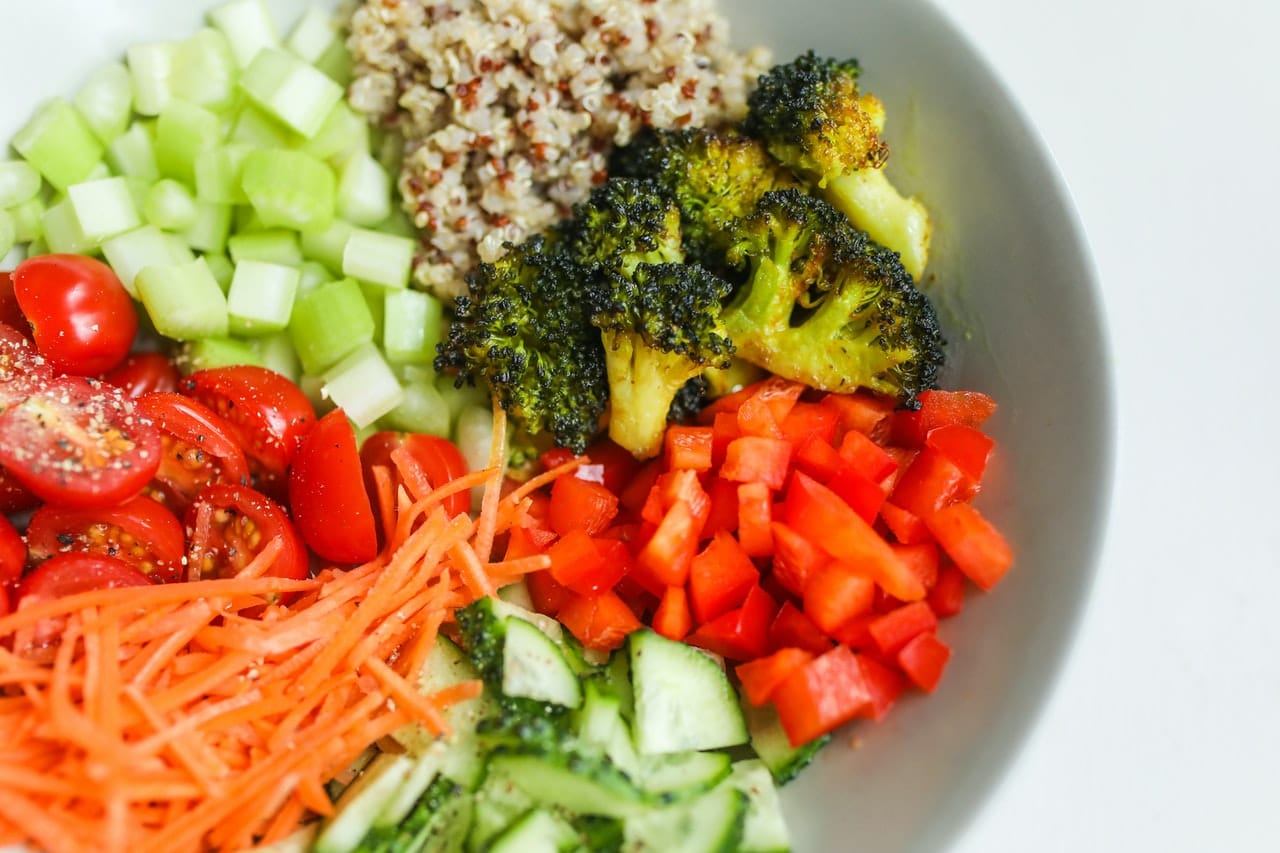
Turns Out, Grandma Was Right – Eat Your Veggies!
Among the food controversies that surround us, the vast majority of health authorities and experts can agree on one thing – vegetables have an important place in our diet. If media is the primary supplier of the health information you consume, then you’re aware of the confusing claims made both for and against most foods. We’ve seen sugar, fat, meat, seafood, dairy, fruit, grains and gluten demonized, but the only foods that have not fallen victim to perpetual criticism are vegetables, and for good reason!
In addition to bringing texture, flavor and color to your plate, incorporating more vegetables into your diet increases its overall nutrient-density and decreases its caloric load. Nutrient-density is determined by the amount of nutrients a food supplies relative to calories. Vegetables are chock-full of vitamins, minerals and fiber to support the diversity of the gut microbiome. This includes phytonutrients (natural chemicals produced by plants) with powerful anti-oxidant and anti-inflammatory properties.
Because vegetables provide an array of nutrients that are hard to find in other food sources, their value to our health is unmatched. A high-vegetable diet reduces our risk for chronic diseases such as diabetes, osteoporosis, cancer, obesity, as well as gastrointestinal, cardiovascular, and autoimmune diseases.
How Many Servings of Vegetables a Day is Enough?
Research shows that for every serving of vegetables or fruits we consume, our risk of all-cause mortality (a measurement of overall health and longevity) reduces by 5%. The greatest risk reduction is seen when we consume 8 servings per day or more. According to the USDA, a serving of vegetables is 1 cup cooked, ½ cup uncooked, or 2 cups leafy greens.
How To Incorporate More Vegetables Into Your Diet
If your diet is lacking color and the mere thought of eating 8 servings of vegetables a day is overwhelming, rest assured. Meeting your daily veggie quota is easier than it sounds! Try these simple, but effective, tips to get more of our nutrient-packed fibrous friends into your diet.
- Roast ‘em – If the thought of vegetables with the life boiled out of them repulses you, you’re not alone. Consider this an invitation to try another method of preparation. Roasting vegetables caramelizes the natural sugars in them, exposing a depth of flavor delicious enough to convert even the most stubborn of veggie-skeptics. An added benefit of roasting is the ability to cook multiple vegetables simultaneously without disturbing their flavor or texture. Try roasting a blend of carrots, cauliflower, broccoli and Brussels sprouts for a side dish that is sure to please the whole family.
- Flavor ‘em – The only thing worse than lifeless boiled vegetables are flavorless, lifeless boiled vegetables. Even self-proclaimed veggie-lovers would prefer them not to be bland. Try sautéing your favorite vegetables in olive oil or butter, roasting them with fresh herbs like rosemary, thyme, parsley, basil, and oregano, or topping with cheese or a squeeze of lemon juice. For a serious flavor boost, try a mix of all three!
- Swap ‘em – An easy way to increase the overall nutrient-density and variety of vegetables in your diet is to swap out common starchy foods for a vegetable alternative. For example, try replacing potatoes, rice, and pasta with versatile vegetables like sweet potatoes, parsnips, turnips, winter squash, carrots or cauliflower. They are just as filling but in all the right ways.
- Hide ‘em – Finally, the last resort. If you are someone who has yet to find a vegetable you enjoy or you leave them off the menu because it’s easier to cater to fussy family members than endure dinner-time food struggles, sneak them in. Mild-flavored vegetables can likely be disguised in meals you and your family already enjoy. Try mixing cauliflower into ground taco meat, avocado into smoothies, spinach into pasta sauce or any combination. The possibilities are endless.
Are You Up For The Challenge?
Want to get on the veggie train and honor your grandmother’s sage advice? We’ve got a challenge for you!
Start ramping up your veggie intake today. If you’re a member of WellStyles through Valley Schools, join us for the Veg Out Challenge April 12-23 on WellStyles to track your progress! Log each serving of vegetables you eat for 6 of the 12 days to earn an additional 200 points to your wellness program.
If you’d like to learn more about the Valley Schools WellStyles program, let’s chat!
Sources:
– Ballantyne, S. (2012, July 2). The Importance of Vegetables [Web log post]. Retrieved February 25, 2021, from https://www.thepaleomom.com/importance-of-vegetables/
– Aune D, Giovannucci E, Boffetta P, et al. Fruit and vegetable intake and the risk of cardiovascular disease, total cancer and all-cause mortality—a systematic review and dose-response meta-analysis of prospective studies [published online February 22, 2017]. Int J Epidemiol. doi: https://doi.org/10.1093/ije/dyw319



